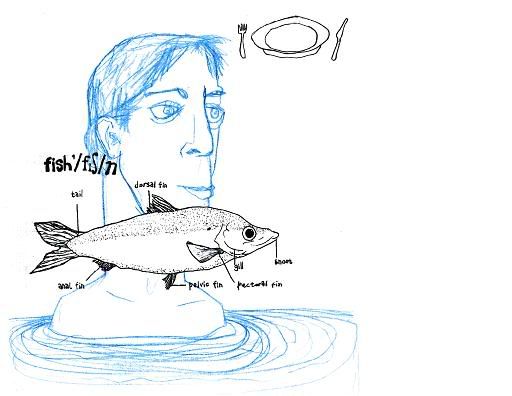The truth about my hair
My first grey hairs appeared when I was seventeen. By the age of twenty five I had lost every last brown strand I'd had left. My hair settled into salt and pepper, with stark white wings starting at my ears and flaming towards the back of my head. The strands themselves, whether white or grey, changed to brittle, hay-like, angry hairs that clung to my hands as I shampooed my head or stuck to my pillow while I slept. Soon enough when I looked in the mirror I would see the pinkish pale parts of my forehead that hadn’t seen the light of day since I grew my first golden locks of hair.
My younger brother’s hair flows in strong dark waves down to his neck; he makes a headband of his sunglasses to keep it out of his eyes. My father’s head showed the first signs of grayness well into his fifties, years after his son’s head had lost its color, and even then his aging hair bore the grey with pride like a decoration; it didn’t become brittle or wash away under water. Leafing through our family albums reveals a crude animation of me catching up to my father's age, cosmetically speaking, and then leaving him behind. From a young baby in his arms I grew up to look like the younger brother he never had; my own brother's uncle. Soon enough when I looked at a picture of me and my father I would see two old men. That was set to happen before I turned thirty.
It’s funny what the memory retains. I distinctly remember a conversation my grandmother had with her sister about my uncle, whose hair had withered up as mine did, only that his metamorphosis had occurred around the time he turned forty. I was just a little boy at the time, sitting in another room, eavesdropping. I could hear my grandmother’s sister frown her Polish frown before she said “It’s a shame. He looks like an old man. All the youth gone. It’s a shame.”
This same woman, my grandmother’s sister, who died of cancer a few years ago, had one other sentence that had burned into my mind for no reason I can think of. “You can’t wash your face without washing your hands!” She yelled at me cheerfully once. “Think about it! How are you going to do it? You can’t! You can’t do it!”
I can't. I couldn't do it then and I can't do it now.
My younger brother’s hair flows in strong dark waves down to his neck; he makes a headband of his sunglasses to keep it out of his eyes. My father’s head showed the first signs of grayness well into his fifties, years after his son’s head had lost its color, and even then his aging hair bore the grey with pride like a decoration; it didn’t become brittle or wash away under water. Leafing through our family albums reveals a crude animation of me catching up to my father's age, cosmetically speaking, and then leaving him behind. From a young baby in his arms I grew up to look like the younger brother he never had; my own brother's uncle. Soon enough when I looked at a picture of me and my father I would see two old men. That was set to happen before I turned thirty.
It’s funny what the memory retains. I distinctly remember a conversation my grandmother had with her sister about my uncle, whose hair had withered up as mine did, only that his metamorphosis had occurred around the time he turned forty. I was just a little boy at the time, sitting in another room, eavesdropping. I could hear my grandmother’s sister frown her Polish frown before she said “It’s a shame. He looks like an old man. All the youth gone. It’s a shame.”
This same woman, my grandmother’s sister, who died of cancer a few years ago, had one other sentence that had burned into my mind for no reason I can think of. “You can’t wash your face without washing your hands!” She yelled at me cheerfully once. “Think about it! How are you going to do it? You can’t! You can’t do it!”
I can't. I couldn't do it then and I can't do it now.


0 Comments:
Post a Comment
<< Home